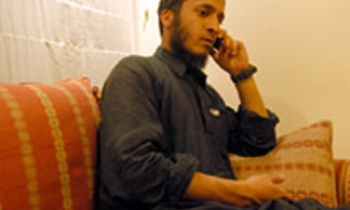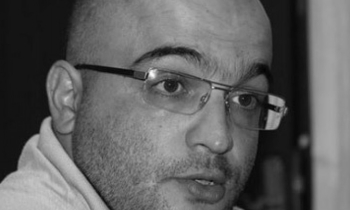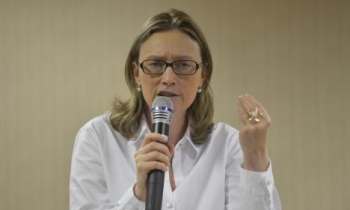Nepal's Supreme Court on Tuesday ordered the government not to close a radio station after police raided its premises to prevent it from relaying a BBC interview with Maoist leader Prachanda.
 More than 500 journalists organised a public meeting to express their solidarity for Radio Sagarmatha in nepal capital Kathmandu on Monday. © Dinesh Wagle/United We Blog
More than 500 journalists organised a public meeting to express their solidarity for Radio Sagarmatha in nepal capital Kathmandu on Monday. © Dinesh Wagle/United We BlogA single-bench of justice Badri Kumar Basnet issued the order after a hearing on a case filed Monday by the radio station against the government after policemen and officials from the ministry of information and communication on Sunday night raided the studio of the FM station, seized radio equipment and ordered the station to shut down the transmission.
Court officials said it was an interim order and a final decision would come after the complete hearing of a petition filed by independent Radio Sagarmatha (the Nepali name for Mount Everest) that closed transmission after the raid on Sunday.
"We have resumed our broadcast after the order," Lakshman Upreti, chief of the radio station, told Reuters. "We hope we will win the case when the court gives a final judgement," he added.
The World Association of Community Radio Broadcasters (AMARC) had earlier condemned the action of the government of Nepal in closing Radio Sagarmatha, describing the action as a gross violation of free speech. AMARC welcomed the Supreme Court's interim decision and called for the closure order to be annulled, an end to attacks on journalists and the media, and respect for the right to freedom of expression in Nepal, the International Feedom of Express Exchange (IFEX) said.
 Radio Sagarmatha regularly relays BBC Nepali, which carried an exclusive interview with Maoist leader Prachanda (extreme right) alias Pushpa Kamal Dahal – the first radio interview given by him in ten years – on Sunday. He spoke about the recent understanding between the seven-party alliance and his party.
Radio Sagarmatha regularly relays BBC Nepali, which carried an exclusive interview with Maoist leader Prachanda (extreme right) alias Pushpa Kamal Dahal – the first radio interview given by him in ten years – on Sunday. He spoke about the recent understanding between the seven-party alliance and his party.Radio Sagarmatha was closed in a police raid at 8:55 pm on Sunday night. Five employees Durga Karki, Rajendra Rijal, Dipak Babu Aryal, Deepak Raj Pandey and Punya Bhandari were arrested and taken to the district police office in Lalitpur. Durga Karka was released the same evening. The other four were held overnight and released on Monday evening. Radio Sagarmatha filed a case with the Nepal Supreme Court on Monday to stay the closure order and was granted an interim stay today, until December 7, enabling it to return to normal broadcasting.
The police action was apparently in response to a planned broadcast on the BBC Nepali service of an interview with Maoist leader Pushpa Kamal Dahal, also known as Prachanda. The interview concerned the recent understanding reached between the Maoist rebels and Nepali political parties on the resolution of the conflict in the country. Radio Sagarmatha, which relays the BBC service, did not carry the interview.
The police confiscated the satellite equipment used by Radio Sagarmatha to receive the BBC service. It has been reported that the government also suspended the airing by Radio Nepal of the BBC Nepali service and prevented seven other radio stations from carrying the service.









